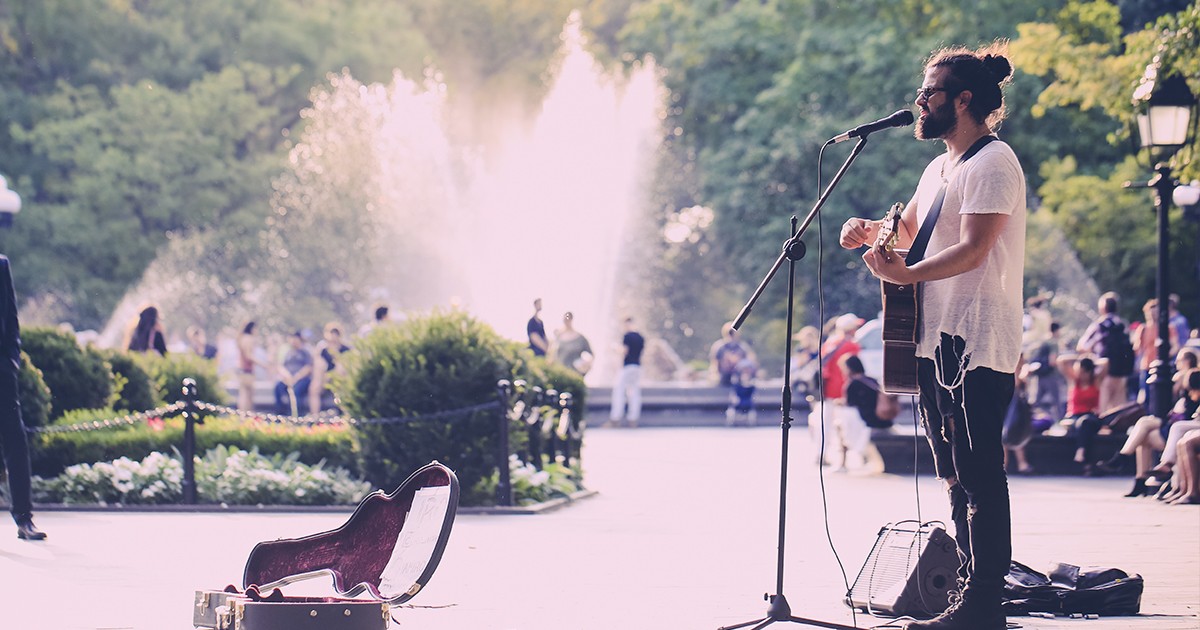
By Kresha Richman Warnock
My parents and my ten-year-old sister were visiting my aunt and uncle that week. My brother and I were home in Seattle by ourselves, deemed old enough to be safe on our own. We were fine in those pre-helicopter-parent days. Except when the call came: Zoey is dead.
The day I turned sixteen, my fifteen-year-old cousin died in a suicide pact with her boyfriend in the woods behind her house in suburban Boston.
The summer before had been the most delightful. Zoey and I had always been cousin-friends, despite living on opposite coasts. But for three weeks that year, we got to live and play together, based out of our grandparents’ upscale apartment in lower Manhattan. Grandma and Grandpa sent us out by cab to Lincoln Center to see revivals of Carousel and Fiddler on the Roof, they took us to nice restaurants, housed us comfortably in the spare bedroom.
But the greatest gift they provided was freedom. It’s true we didn’t take the subways—not that much freedom—but we were allowed to go out by ourselves and explore Manhattan. Zoey and I weren’t fashion mavens or interested in learning more about our Jewish roots. We loved to be on our own in the city, and we loved music.
On Sunday afternoons, after a breakfast of lox and bagels and whitefish, we would walk the mile to Washington Square Park, where the lawn was filled with guitar-playing songsters. This community was my idea of heaven. I imagined my future here, sitting on the lawn with my guitar, singing harmony alongside some handsome songwriter with stringy hair and dreamy eyes.
Or we would spend hours shuffling through the stacks in the massive LP stores where you got music in those days. I would come back with a semi-obscure record by one of the new singer songwriters. Zoey would come home with Johnny Mathis. We’d sit on the white carpet in the living room, and listen to Johnny’s smooth, seductive voice reassure us that he was in love with us, or at least that the chances were pretty likely this was the case.
It was that summer I got my first “boyfriend.” I met Steve as a pen pal through a folk music magazine. In my fifteen-year-old eyes, he was handsome, but we never exchanged a single photo. With Zoey egging me on, we did exchange hand-written letters for a few months. She even had plans for him to visit me in Seattle the next summer and consummate our relationship in the narrow twin bed in the bright yellow bedroom I shared with my sister. Steve and I “broke up” over the winter, but apparently Zoey met her someone.
Two years later, I wrote a poem for Mrs. Hundley’s AP English class:
He led her out into the woods,
Just him, his gun and her.
He shot her, then he shot himself
And they were both so sure.
I wrote the poem, but I never thought Zoey’s life was one I got to mourn; it was not my story. After all, there was her mom and dad, forever traumatized in their house in the woods. There were her brother and sisters, too young to understand what had happened. There were her grandfathers, who had had to identify the body. There was my own little sister, visiting in Boston, standing in the background as the horror unfolded.
Why did I have to age into my seventies before I understood that sorrow isn’t like that? When I was sixteen, I was stunned into the zombie-like state that seems to engulf me, even now, when tragedy hits. I walk, I talk, I do whatever job there is to get done, but I am an observer of the world, my insides are petrified. I can’t find my emotional response.
Right after Zoey died, I remember standing by myself in the clothing section of a store, trying to buy a new shirt, and not being able to move, just staring ahead. Still, I must have cooked for my younger brother, since my parents were still gone, turned the lights out in the house at night before we went to bed. The parents came home. I was sixteen. I got my driver’s license. In the fall, I went back to school.
Did anyone talk to me? No one would think of therapy for a third-person bystander in those days. There was no funeral, no public outpouring of grief for me to attend. It was not my family’s way.
When Mrs. Hundley called on me to read the poem, I asked, “What if it’s very personal?” The wise teacher met my eyes and said, “That will probably mean it’s good.” As I reread it now, “The Ballad of My Cousin,” I realize it ain’t Shakespeare, but it still makes me cry.
“My cousin’s dead” I softly reply;
“My cousin’s dead,” I scream;
“They’ve laid her in her cradle grave,
To sleep, perchance, to dream.”
Even as I repeat this verse, I almost make a joke that it is, in fact, Shakespeare, Hamlet to be specific. But even more than fifty years later, nothing about this is funny.
Cousins can be best friends. My heart wonders what my life would have been like if Zoey and I had kept in touch through college, had our kids at the same time, been Golden Girls together? I’ll never know.
That summer in New York, we bought matching, deep-blue ceramic pendants from a shop near Washington Square. The leather cord that held mine has long rotted away, but I will always keep that souvenir in my jewelry box. It feels smooth and cool to the touch. Maybe I should hold it, and sit still, and cry.